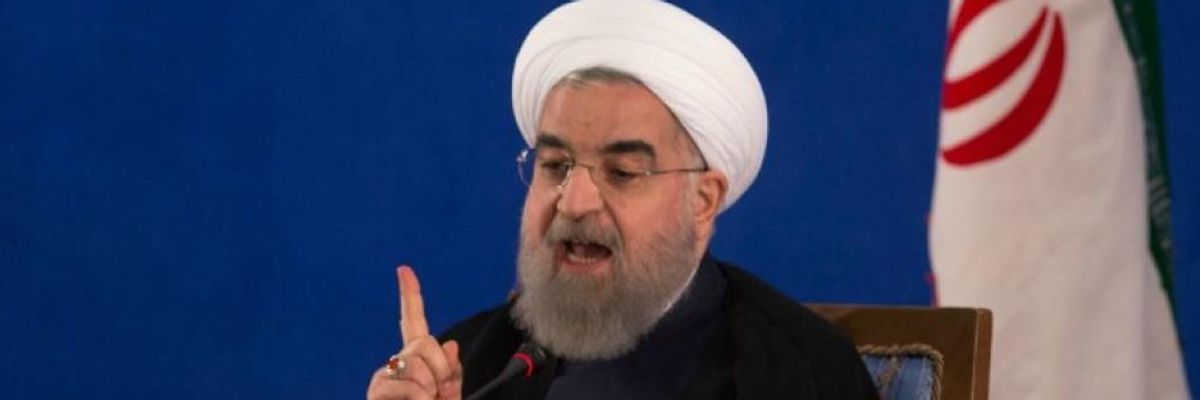Iranian President Hassan Rouhani on Sunday placed blame for a terrorist attack at a parade in southwestern Iran on a U.S.-backed Persian Gulf state, and said he planned to "confront" the U.S. over tensions between the two countries at the upcoming United Nations General Assembly this week in New York.
The attack took place Saturday at an annual event in Ahvaz, killing at least 29 people, including several civilians, and injuring nearly 70 others. ISIS and a separatist group with Saudi connections, the Ahvaz National Resistance, both claimed responsibility for the attack, in which attackers disguised as soldiers opened fire at a military parade. But Rouhani suggested one of the United States' allies in the region, including Saudi Arabia or the United Arab Emirates (UAE), had been involved.
"It is Americans who instigate them and provide them with necessary means to commit these crimes," Rouhani said of the countries he was accusing.
Following the attack, Iranian Foreign Minister Javad Zarif also held regional U.S. allies responsible in a statement on Twitter.
The attack came four months after President Donald Trump withdrew from the 2015 Iranian nuclear deal, against the advice of the international community and the wishes of 63 percent of the American public. He also announced that he would reimpose sanctions on the country, which have resulted in higher prices for medications and other goods,
"America is acting like a bully toward the rest of the world...and thinks it can act based on brute force," Rouhani told reporters just before leaving Iran for the U.N. meeting in New York. "But our people will resist and the government is ready to confront America. We will overcome this situation and America will regret choosing the wrong path."
Trita Parsi, president emeritus of the National Iranian American Council, posited that Iran's accusations are "difficult to dismiss."
"John Bolton, the national security adviser, penned a memo last August in which he specifically said the U.S. should be providing assistance to the Khuzestan Arabs, the group that this entity claims to represent, the entity that perpetrated this terrorist attack," Parsi told CNN. "You have the Saudi Crown Prince saying that he's going to take the fight inside of Iran, you have the advisor to the UAE Crown Prince today on Twitter saying that this was not a terrorist attack, that this was declared policy...mindful of that picture, it is not completely inconceivable that Iranians are going to be looking to Saudi Arabia and potentially the U.S. as being behind these attacks."
Parsi also criticized many in the corporate media for calling the incident a "military parade attack" instead of a terror attack that killed numerous civilians.



